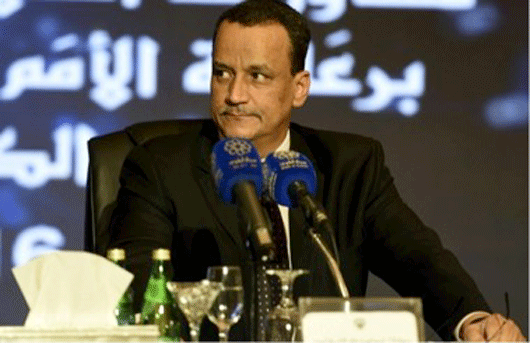
Local Editor
He also warned the Security Council about the growing extremist element groups like Al Qaeda and ISIS could keep feeding off the chaos to spread their brand of terror such as the suicide bombing in Aden on Monday that killed more than 50 people.
The envoy’s push comes after three months of U.N.-brokered talks in Kuwait fell apart in early August with no political agreement, as opponents clashed over forming a unity government. Since then, the Saudi-led coalition has increased its air raids on Houthi territory while the Anasrullah have also stepped up their cross-border attacks on Saudi Arabia.
The escalation once again underscores the complex nature of this war that has pit tribal factions, and their regional backers, against each other, with Saudi Arabia backing the regime of Abd Rabbu Mansour Hadi and the Houthis allied with forces loyal to former president Ali Abdullah Saleh.
Despite the failure of the Kuwait talks, there is a plan in the works to end this war that has killed more than 10,000 people and displaced more than 3 million; a roadmap of sorts to form a unity government and restore critical institutions badly needed for a functioning country to work.
To an extent, there is also some measure of commitment from opposing sides to end this conflict. But first, a complete and sustained ceasefire must be in play.
Cheikh Ahmed told the press this week that he is hoping for a return to a ceasefire before the Muslim holy day of Eid al-Adha on September 11, and despite the odds, he is also hoping for a political agreement by that time.
Source: News Agencies, Edited by Website Team